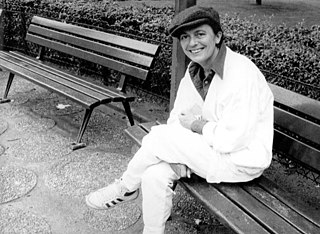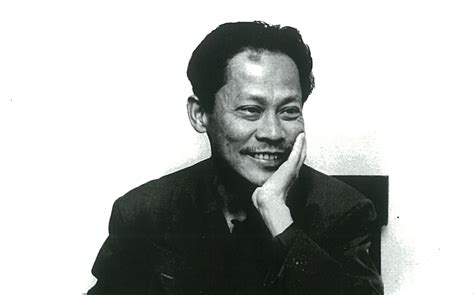A Quote by Monique Wittig
Not only do we naturalize history, but also consequently we naturalize the social phenomena which express our oppression, making change impossible
Quote Topics
Related Quotes
When possums were introduced in 1837 to start a fur industry, no one predicted that these Australian neighbours would naturalize with destructive enthusiasm, wreaking havoc on gardens and bush alike. Up to 20 million possums a year were killed during the height of the fur trade, but this barely checked their rapid expansion.
Now culture being a social product, I firmly believe that any work of art should have a social function to beautify, to glorify, to dignify man... Since any social system is forced to change to another by concrete economic forces, its art changes also to be recharged, reshaped, and revitalized by the new conditions... The making of a genuine artist or writer is not mysterious. It is not
the work of Divine Providence. Social conditions, history, and the people's struggle are the factors behind it.
War is the matter which fills all history; and consequently the only, or almost the only, view in which we can see the external of political society is in a hostile shape: and the only actions to which we have always seen, and still see, all of them intent, are such as tend to the destruction of one another.
The history of science, like the history of all human ideas, is a history of irresponsible dreams, of obstinacy, and of error. But science is one of the very few human activities-perhaps the only one-in which errors are systematically criticized and fairly often, in time, corrected. This is why we can say that, in science, we often learn from our mistakes, and why we can speak clearly and sensibly about making progress there. In most other fields of human endeavour there is change, but rarely progress ... And in most fields we do not even know how to evaluate change.
What history teaches us is that man does not change arbitrarily; he does not transform himself at will on hearing the voices of inspired prophets. The reason is that all change, in colliding with the inherited institutions of the past, is inevitably hard and laborious; consequently it only takes place in response to the demands of necessity. For change to be brought about it is not enough that it should be seen as desirable; it must be the product of changes within the whole network of diverse casual relationships which then determine the situation of man.
The history of man so far is nothing to brag about, from the standpoint of our ideas - and what I mean is, that in comparison with most other societies, our present-day American society has achieved things which are remarkable: material wealth, greater than for any other nation; a relative freedom from oppression; a relative mobility; a spreading of art, of music, of thought, which is also rather unique.
There is fascism, leading only into the blackness which it has chosen as its symbol, into smartness and yapping out of orders, and self-righteous brutality, into social as well as international war. It means change without hope. Our immediate duty - in that tinkering which is the only useful form of action in our leaky old tub - our immediate duty is to stop it.
I'll keep this as nonpartisan and diplomatic as possible - but for those of us whose heads are kind of spinning off and are really engaged in what's happening right now and trying to effect change where we can, when we can, I think we also need to express ourselves and express our anger and also find joy in things like The Golden Girls right now.


































